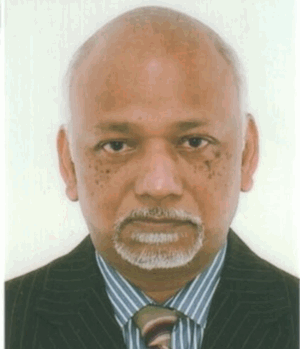This special issue of the IETE Journal of Research is a selection of peer reviewed submissions presented at the International Conference on Innovations in Technology, Management & Design for Achieving Sustainable Development Goals (SDGs): ICSDG 2020 held at JKLU, Jaipur, India in February 2020. As the world needs to question the very definition of “development”, it is apt and very timely that the United Nations has set the Sustainable Development Goals as part of the Agenda 2030. The scope and diversity of the SDGs demands massive unprecedented opportunities for trans-disciplinary collaborative research and innovations. In order for us to leave this planet habitable for our nth next generations, it is imperative that all of us across the regional, national, philosophical, and geo-political borders work together to contribute our bit towards the achievement of the SDGs by reducing resource utilization, or exploring alternatives to processes or methods that contribute towards these goals. The SDG topic is a fertile ground for humanities and social scientists to come together with biologists, agriculturists, designers, technologists, chemists and virtually any field or discipline to make an impact for societal benefit.
We are pleased that we were invited to be the Guest Editors for this Special Issue that underwent a rigorous process for short listing, interacting with peers across the globe, and suggesting select papers directly or indirectly related to this contemporary and important theme of Sustainable Development. The first paper titled “Adaptive Compressed Spectrum Sensing Using Neural Networks in Cognitive Radio Networks,” addresses the topic of cognitive radio, which is a promising approach to maximize the efficiency of telecommunications networks required nowadays to support human life on Earth in a sustainable manner. Similarly, in the second paper on “Implementation of a Distributed Home Automation Scheme with Custom Hardware Nodes Using ZigBee and MQTT Protocols,” a low-cost but efficient network is proposed to support smart home applications, based on open source protocols. In the following paper titled “Performance of an Integrated Settler Based Anaerobic Biofilm Reactor as Onsite Sanitation System,” the performance of an onsite wastewater sanitation system is assessed, which is crucial to protect our environment. The fourth paper titled, “Stackelberg Game Theory Based Energy Management Systems in the Presence of Renewable Energy Sources,” addresses the topic of efficient energy systems, in the presence of emerging renewable sources. In the next paper titled “Effectiveness of Training Program on ‘Design & Analysis of Machines Using MATLAB & Motionview’,” authors evaluate the quality of training programs, in the context of engineering education, a subject that is receiving most interest in India currently in view of the need for skills for sustainable employability or self-employability. The sixth paper titled “Confirming Antecedents of Green Consumption Intention: A Sustainable Model for Food Aggregators,” studies the problem of “green consumption” intention, providing useful insights for food aggregators. Finally, in the seventh paper titled “Design of Flexible Tactile Array Sensor,” development of a tactile sensor is proposed, that can enhance the functionality of existing low cost prosthetic gadgets, enabling inclusion of the sense of touch.
We thank all the authors, colleagues, administrators at the IETE Journal of Research, and the publisher Taylor & Francis who have contributed to this important cause by sharing their valuable thoughts, time and resources towards authoring, reviewing, administering, and publishing of this special issue.
Additional information
Notes on contributors

Jyoti Prakash Naidu
Prakash Naidu (PhD, University of Toronto; MTech, IIT Madras; PGDB Bangalore) is the Dean (Research and Development) at JK Lakshmipat University (JKLU), Jaipur, India. He has extensive experience in both industrial R&D and academia, with trans-disciplinary worldwide experience and expertise. He has worked for or been affiliated with leading institutions, laboratories, and industry, as well as start-ups and SMEs, in the United Kingdom (University College London, University of Derby), the United States (MIT-Spin-off Companies at Boston, University of Phoenix- Arizona), Canada (University of Toronto and Spin-offs, Meritus University, Carleton University), and India (Centre for Artificial Intelligence and Robotics:CAIR-DRDO under late Dr APJ Abdul Kalam, Institute for Robotics and Intelligent Systems: IRIS, HMT, VTU, MSRUAS, Presidency) in different capacities ranging from R&D Engineer to HOD, Director, Dean, Advisor.
Several awards and honours have been bestowed upon him, including the Canadian Commonwealth Scholarship and Fellowship (1992-96), the Defence Technology Spin-off Award received from the honourable Prime Minister of India as Project Director of IRIS (2005), and National Design Awards (Senior-2003, Student-1979) from the National Design and Research Forum, Institution of Engineers, India; and the Canadian Star of the Global Health Award (2013) from Grand Challenges Canada funded by the Government of Canada for Bold Ideas.
Dr Naidu is the originator of the field of Design for Automation as an extension of the Axiomatic Design Theory established at MIT. His research interests include design theory and methodology with applications for design of intelligent systems, design for patentability and sustainability in the fields of medical devices, biotechnology, advanced manufacturing, mechatronics, robotics, automation, virtual reality, business methods and other areas overlapping with multi-disciplinary aspects of humanities and social sciences such as cyber-physical-social systems.
Dr Naidu has vast hands-on design, development, and product realization experience ranging from manufacturing systems for specialized aerospace components to biomedical devices with several patents issued or under process; one of his major achievements was the development of pioneering DNA Arraying System for biomedical applications culminating in sale of technology to industry for considerable fees and royalty. He is a licensed member of the Association of Professional Engineers of Ontario, Canada with Certificate of Authorization as a Consultant. He is also member of the American Society of Mechanical Engineers (ASME). He is Member of the Education Committee of the PHD Chamber of Commerce and Industry (PHDCC). Email: [email protected]

Gustavo Sanchez
Gustavo Sanchez has 25 years of experience as a consultant, academician and researcher in the fields of control systems, optimization, machine learning, automation and data science, trying to strike a balance between the generation of new theoretical results and the application to solve practical problems. He received the BS degree in 1994 from the University of Metz, France, MS from the University of Nancy, France and the PhD degree from Simon Bolivar University, Venezuela, in 2011 graduating with honours. As industrial experience, he has worked as an automation engineer for several companies. He has published 31 research papers and articles in peer- reviewed journals and conference proceedings. In 2010, he was the first Latin American researcher to be honoured with the IEEE Computational Intelligence Society Best Paper Award. In 2015, he was invited by University of Maryland, in USA, to deliver a program on Machine Learning applications to solve industrial problems. Currently, he is professor at JK Lakshmipat University, Jaipur, India, and his research interests include automation, IoT, data science, remote sensing and cyber-physical-social systems. Email: [email protected].
